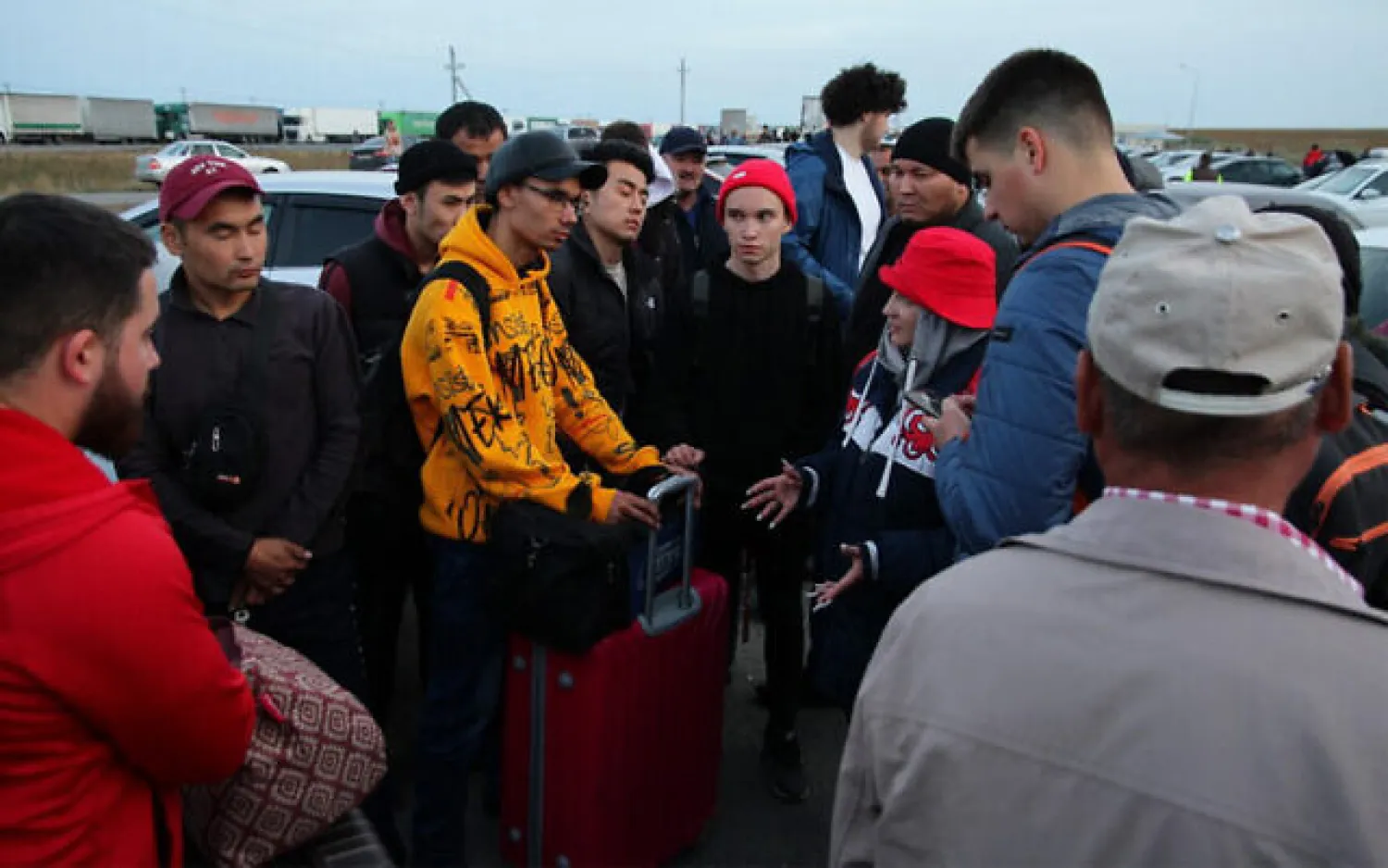Fearing the border may close "forever" after President Vladimir Putin's mobilization order for the war in Ukraine, Russians are rushing to flee across Finland's Vaalimaa crossing.
On this foggy early morning, dozens of cars and buses with Russian license plates are lined up at the border, their passengers hoping to make it into Finland before it's too late, AFP said.
Some smoke cigarettes outside their vehicles as they wait impatiently.
"Many people are afraid," says Oleg, a bar owner from Moscow who has just crossed over to the Finnish side.
"The mobilization is a first sign that something worse might happen."
He fears the border might "close forever" and Russians "will live in a totalitarian state where they can't do anything at all".
"I live in a country which sinks a little more every day," he explains.
Finland said on Monday that more Russians came to the country over the weekend than any other weekend so far this year -- around 17,000 entries -- after Moscow's military call-up announcement sparked a surge in arrivals.
Helsinki announced on September 23 it planned to "significantly restrict the entry of Russian citizens" and would finalize the decision in the "coming days".
While the restriction is not yet in force, the border guard service said it was ready to apply the new rules "within a day".
The Finnish government is expected to meet Thursday to decide when it will go into force.
- 'Sleepless nights' -
Viktor Zakharov -- who arrived in Finland with his partner and their three children -- says he has five friends who have left Russia since the mobilization.
While the 35-year-old scientist from Saint Petersburg does not have a military background and is not part of the mobilization, he is worried the situation might change.
"If you are not fit today you can be tomorrow and be in the army," he says, as the travelers wait patiently for their vehicles to be inspected by Finnish border guards.
Zakharov -- who is headed for Israel -- drove his fully packed SUV through the Russian side in 30 minutes and then spent one-and-a-half hours making his way through the Finnish crossing.
Despite being in Finland, "the feeling of freedom has not come yet because of the sleepless nights and the packing, and to be honest it's not clear yet," he explains as he hands pieces of candy to his children.
State employee Vadim arrived by bus. He left his mother in charge of looking after his apartment in Moscow, and hopes to return soon.
"I have heard about many cases of young men being deported and not being able to cross because of the mobilization," he says.
"I can't say I'm happy, I can't with the world's situation."
- Prepared for 'difficult developments' -
The Finnish border guard said earlier this week it was preparing for "difficult developments" as the situation evolved.
"It is possible that when travel is restricted, attempts at illegal border crossings will increase," a spokesman said.
In July, Finland passed new amendments to its Border Guard Act to facilitate the construction of sturdier fences on the Nordic country's 1,300-kilometre (800-mile) eastern border with Russia.
As it stands, Finland's borders are secured primarily with light wooden fences, mainly designed to stop livestock from wandering to the wrong side.
On Tuesday, the Finnish border guard said it believes it will be necessary to build 130-260 kilometers of barriers in high-risk areas.
"The physical barrier itself is indispensable in a large-scale entry situation, acting as a barrier and an element of diversion for potential crowds," the border guard said in a statement.
The fence still requires a political decision.









